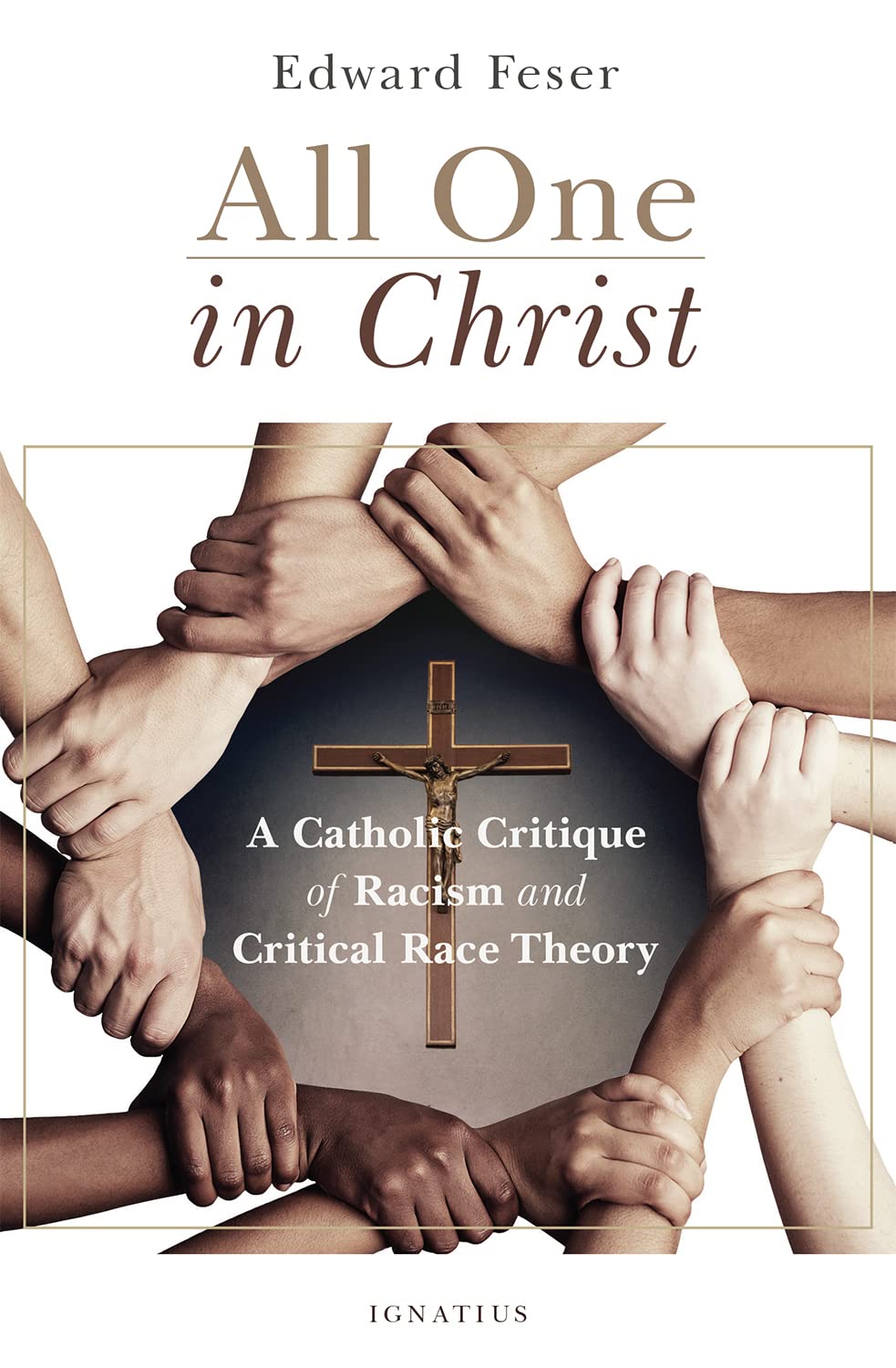A Review of All One in Christ: A Catholic Critique of Racism and Critical Race Theory, by Edward Feser
Many people have come to see the threats of Critical Race Theory (CRT), but in his new book All One in Christ, Catholic philosopher Edward Feser does much more than just pile-on with another “CRT is bad” piece. Instead, Feser goes deeper into philosophical assumptions and historical church teachings to keep us on truth’s narrow path between the pitfalls of CRT’s racialism on the one hand and its mirror image in certain reactionary circles on the other. In doing so, Feser busts some common misconceptions along the way.
Racism—and the Church’s Opposition to It—Is Not a Modern Phenomenon

From these eternal anchors, then, it can be seen that “the Church’s condemnation of racism is neither a recent novelty nor a matter of her following the lead of secular moral attitudes. On the contrary, she has taught the same thing for centuries, long before the rise of the contemporary secular consensus against racism” (17).
When racist theories were emerging as justifications for the enslavement of Africans and Native Americans in the New World, Pope Paul III responded in 1537 that Africans, Indians, and “all other people who may later be discovered by Christians, are by no means to be deprived of their liberty or the possession of their property, even though they be outside the faith of Jesus Christ…nor should they be in any way enslaved” (19-20). Feser notes that while “it is true that this teaching was widely ignored by those who colonized the New World” this was “the Church’s teaching…centuries before the phenomena of secularism and liberalism existed” (20). The Church’s opposition to both racism and chattel slavery has been consistently grounded “in nature and grace [and] in our common origin and supernatural destiny,” all of which run “deeper than anything that could be either discovered or undermined by biological science” (11).
Feser also marshals quote after quote from church history to show that the Church is not selling out to egalitarianism, Marxism, or the principles of liberal democracy in her opposition to racism.
Deconstructing the Arguments of CRT
But opposing racism is not the same thing as supporting CRT. In fact, they are at odds because CRT traffics in racist thinking. Feser argues, as others have, that “CRT is essentially a reformulation of some of the main themes of Marxism and postmodernism in racial terms” (72).
Feser meticulously deconstructs the arguments of CRT, revealing the “relentless, indeed shameless, commission of a variety of textbook logical fallacies” (74). He takes on the claims of CRT and uncovers racist assumptions, circular reasoning, and illogical arguments. He also tackles the claim that any disparities are evidence of racism by demonstrating the primary role of culture, environment, and family—especially the family:
[B]y far the most important cultural factor influencing disparate group outcomes is the relative stability of the family. That is precisely what we should expect, given that the family is the fundamental social unit, such that larger groups can hardly prosper when it is weak, any more than a body can be healthy when its organs are sick (111).
Situating the Nation Properly
Feser also addresses issues of national identity. Though this might seem out of place, he makes clear that a condemnation of racism in all its forms is not an endorsement of the idea that humanity is one globalist glob of undifferentiated stuff. There is certainly a place for preserving the religious, cultural, and linguistic heritage of a nation when it is understood as secondary to the ultimate truth of the imago Dei and the universal offer of salvation in Christ:
Just as one can show too much attachment to one’s nation, so too one can show too little. Patriotism is the sober middle ground, and those who eschew it in the name of cosmopolitanism or internationalism are no more in line with the teaching of the Church than those who go to the opposite extreme of making an idol of one’s nation (36).
[T]he Church’s teaching on…the nation as a natural institution is in no way a concession to nationalism, racism, or xenophobia but precisely a corrective to them. It is in the sober middle ground between these errors on the one hand, and the excessive individualism and globalism that tend to dissolve national loyalties on the other (51).
For Further Exploration
For a book of less than 200 pages, Feser covers substantial ground. While beyond the scope of the book, readers may benefit from further exploration into early Patristic sources and further discussion of some of the controversial papal bulls such as Dum Diversas. Nonetheless, this book would be a great resource for those who are feeling the pressure of DEI in the workplace and are looking for logical responses to CRT popularizers whose ideas are spreading through HR departments and faculty professional development sessions. College students encountering CRT on campus would also benefit from Feser’s succinct work. All readers will come away from this book with a better understanding of what is happening today in relation to race and what the church, warts and all, has been saying about it for a very long time.
Joshua Paulingis headmaster of All Saints Classical Academy and vicar at All Saints Lutheran Church (LCMS) in Charlotte, NC. He also taught high school history for thirteen years and studied at Messiah College, Reformed Theological Seminary, and Winthrop University. He is author of Education's End and co-author with Robin Phillips of Are We All Cyborgs Now? He also has written for Front Porch Republic, Mere Orthodoxy, Public Discourse, and Touchstone.
• Get SALVO blog posts in your inbox! Copyright © 2026 Salvo | www.salvomag.com https://salvomag.com/post/beyond-a-simple-crt-take-down-grounding-opposition-to-racism-in-the-churchs-long-tradition


















